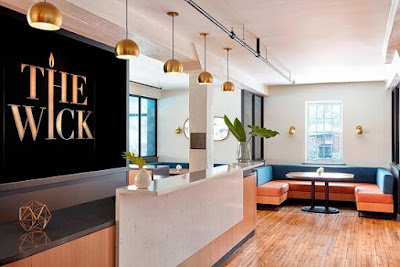Gossips has told this story before. The Hudson Industrial Development Agency was established in 1975, during the heyday of Urban Renewal in Hudson. In the early years, the agency was very active, granting property tax abatements in the form of PILOTs (payments in lieu of taxes) not only to industrial projects (the no longer existing L&B Furniture being one example) but also to housing projects (for example, Hudson Terrace). For the rest of the 20th century and the beginning of the 21st, the Hudson IDA was fairly dormant. In the mid-1990s, the IDA gave a ten-year PILOT to what was then Hudson City Savings Institution for its new building at 1 City Centre. In 2009, the IDA granted a PILOT to Evergreen Partners for the redevelopment of Hudson Terrace. That PILOT, initiated in 2010, is ongoing.
In 2015, the NYS Authorities Budget Office recommended that, because of its lack of activity, the Hudson IDA be absorbed by the Columbia County IDA. That did not happen. In 2016, the Hudson IDA worked with the county IDA to structure a ten-year PILOT for The Wick Hotel.
After The Wick, there were no new projects before the Hudson IDA for a few years, but that has changed. In February, Mike Tucker, president and CEO of CEDC (Columbia Economic Development Corporation), which provides support staffing for the Hudson IDA, reported that, in the previous two years, the IDA had approved $78.67 million in new investment in Hudson. Those projects were:
- The hotel at 620 Union Street--$14.3 million
- Affordable housing at 75 North Seventh Street--$22.5 million
- Affordable housing at 708 State Street--$16.2 million
- PBF Hudson (Pocketbook Factory)--$25.6 million
At its meeting later today, IDA will also be considering proposed guidelines for considering applications and a community benefit agreement framework developed during three workshops that took place between March 31 and April 28.
 |
| Claire Cousin, Rebecca Wolff, and Kaya Weidman at second IDA workshop |
- Affordable Housing--does the project consider the affordable housing needs of employees/workers? Is the project consistent with the City's Affordable Housing Development Plan and other city efforts to address affordable housing development goals?
- Workforce Training--has the project included job training for existing city residents who are unemployed or underemployed?
- Green/Resiliency--has the project considered LEED certification and other green building practices in its design, including resilient design to address increasingly violent weather, storms, and climate change?
- Historic Preservation--does the project revitalize vacant properties or make use of brownfield, other formerly active land and properties?
- Projected New Jobs--how many new jobs will the project bring? Increasing percent tax exemption the greater the number.
- Retained Jobs--how many jobs will be retained by the project?
- Projected Wages--will the project pay above the minimum wage for entry-level workers? Higher paid jobs increase the exemption value.
- Workforce Training--will the developer invest in additional funds in workforce training? Additional investment will increase exemption value.
- Creativity of Project/Differentiation of Employer or Project--does the project bring a new employer, or additional industry to the city that is not currently well-represented? Is the project unique, creative, or otherwise desirable?
- Housing--additional housing benefits, including funds for the Housing Trust Fund/Land Trust
- Community Amenities--creation of built environment improvements to city spaces
- Open Space/Recreation--improved green space, recreation space
- Youth--terms that benefit youth through education, health, employment
- Transportation--additional transportation infrastructure improvements
- Additional Items--items agreed upon by the coalition
COPYRIGHT 2022 CAROLE OSTERINK


No comments:
Post a Comment